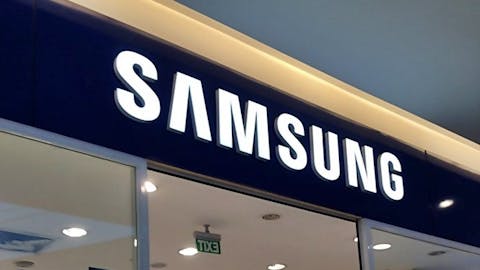According to a recent Schedule 13G form filed with the Securities and Exchange Commission, Paul Singer’s Elliott Associates L.P. owns 2.43 million shares in Fortress Biotech Inc. (NASDAQ:FBIO), which represent 5.18% of the company’s outstanding common stock. This marks an increase of the fund’s equity holding in Fortress Biotech of 1.98 million shares since its most recent 13F filing with the SEC for the reporting period of March 31.

Elliott Management Corporation currently manages hedge funds Elliott Associates L.P. and Elliott International Limited, which together have more than $25 billion in assets under management as of December 31, 2014. Elliot Management takes an activist approach to investing, often building up significant but minority stakes in underperforming companies and pushing for changes. Elliott Management’s flagship fund, Elliot Associates was established by Paul Singer in 1997, which makes it one of the oldest hedge funds under permanent management. Elliot Associates has generated an annualized return of 13.8% since its inception, while delivering an even higher annualized return of 17% during its first ten years of existence. Paul Singer’s oldest fund, Elliott Associates, has experienced only 11 down quarters out of 153, which clearly indicates that Singer’s expertise in investing is exceptional. Even more to that, Singer’s funds have delivered negative returns in only two years, 1998 and 2008. According to its most recent 13F filing, Elliott Management oversees a public equity portfolio with a value of $8.12 billion, while its top ten holdings represent 71.97% of the entire portfolio.
Follow Paul Singer's Elliott Management
Professional investors like Paul Singer spend considerable time and money conducting due diligence on each company they invest in, which makes them the perfect investors to emulate. However, we also know that the returns of hedge funds on the whole have not been good for several years, underperforming the market. We analyzed the historical stock picks of these investors and our research revealed that the small-cap picks of these funds performed far better than their large-cap picks, which is where most of their money is invested and why their performances as a whole have been poor. Why pay fees to invest in both the best and worst ideas of a particular hedge fund when you can simply mimic the best ideas of the best fund managers on your own? A portfolio consisting of the 15 most popular small-cap stock picks among the funds we track has returned more than 139% and beaten the market by 81 percentage points since the end of August 2012 (see the details).
Fortress Biotech Inc. (NASDAQ:FBIO), formerly Coronado Biosciences Inc. (NASDAQ:CNDO), is a biopharmaceutical company focused on acquiring, developing, and commercializing novel pharmaceutical and biotechnology products. Fortress is aiming to develop and commercialize the products that it acquires both directly and indirectly by establishing subsidiary companies. Over the last year, the company has launched six subsidiaries with nine products, ranging from pre-clinical to Phase III-ready product candidates, some of which are produced and developed for the treatment of autoimmune diseases and cancer. The shares of Fortress have grown by over 4% since the company re-branded the company as Fortress Biotech from Coronado Biosciences on April 27 this year. Therefore, starting from April 28, the company began trading on the NASDAQ Stock Market under its new ticker symbol “FBIO”. The Chairman and CEO of Fortress Biotech, Dr. Lindsay A. Rosenwald, believes that the re-branded name better reflects the company’s new business plan of developing a diversified biopharmaceutical company with a large portfolio of products and multiple revenue streams.
On July 17, Fortress Biotech announced that its wholly-owned subsidiary, Altamira Bio, had acquired from New Zealand Pharmaceuticals Ltd a license from the National Institutes of Health (NIH) and Cooperative Research and Development Agreements (CRADAs) for the development of oral N-acetyl-D-mannosamine (ManNAc), which is a key composite in the sialic biosynthetic pathway for the treatment of hyposialylation disorders. It is expected that ManNAc administration will supplement the genetic insufficiency to help affected patients normalize protein sialylation and retain their muscle strength. Of course, this is great news for the people who suffer from Hereditary Inclusion Body Myopathy (HIBM), and this is also great news for the shareholders of Fortress and its potential investors. The company will keep working with NIH scientists on bringing this potential therapy to patients, which will unlock a new revenue stream for the company.
The first quarter of 2015 was an eventful and productive quarter for Fortress Biotech, as the company secured six key licensing agreements and formed three new subsidiaries. We’ll now take a look at some financial figures that might be of interest for potential investors in the company. Fortress Biotech reported revenues of $500,000 for the first quarter of 2015, compared to no revenues in the same quarter a year ago. As of March 31, the company’s net cash and marketable securities amount to $68.9 million, compared to the $69.7 million figure reported at the end of the first quarter of 2014. Oddly, Fortress Biotech’s research and development expenses came to $1.6 million in the first quarter of the current year, while the company reported $4.5 million for the same quarter in 2014. At the same time, the company delivered a net loss of $12.1 million or $0.31 per share for the first quarter of 2015, compared to a net loss of $7.4 million or $0.21 per share reported in the first quarter of 2014. Within our database, Dr. Behzad Aghazadeh‘s venBIO Select Advisor is among the largest shareholders in Fortress Biotech Inc. (NASDAQ:FBIO), owning 600,000 shares.
Disclosure: None




